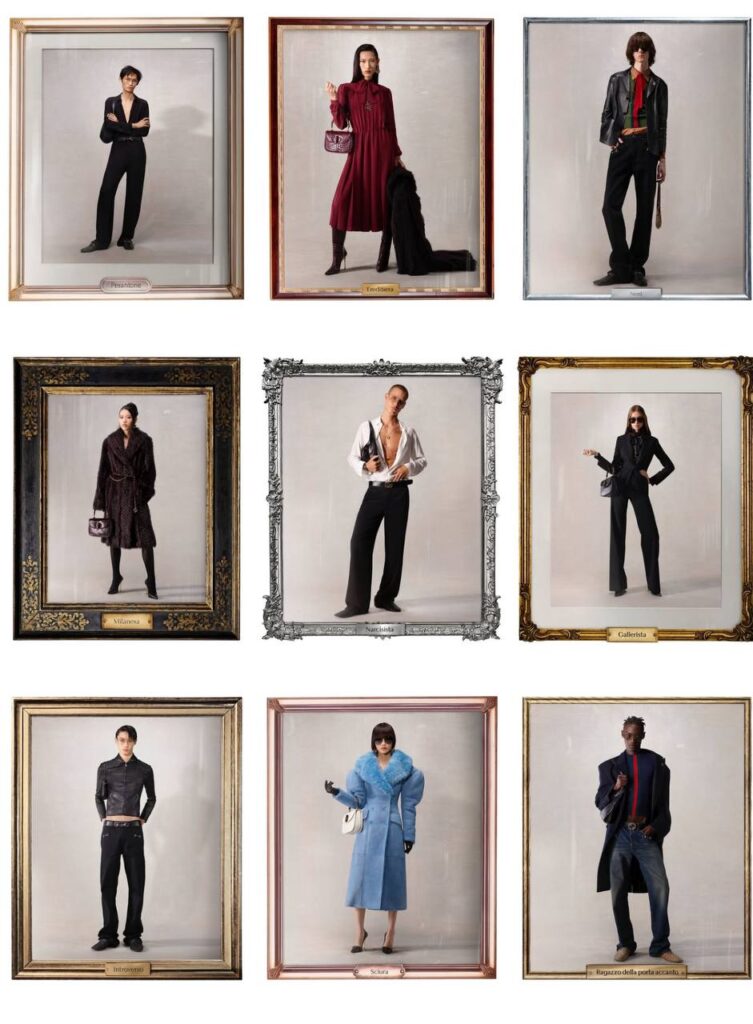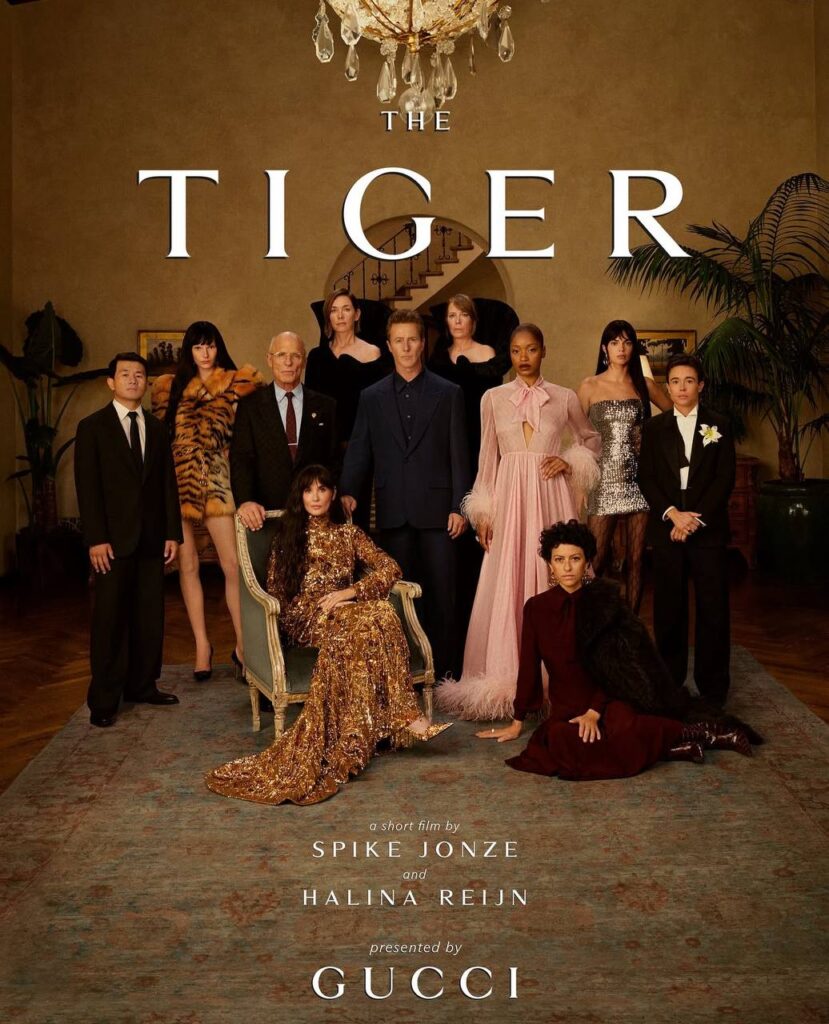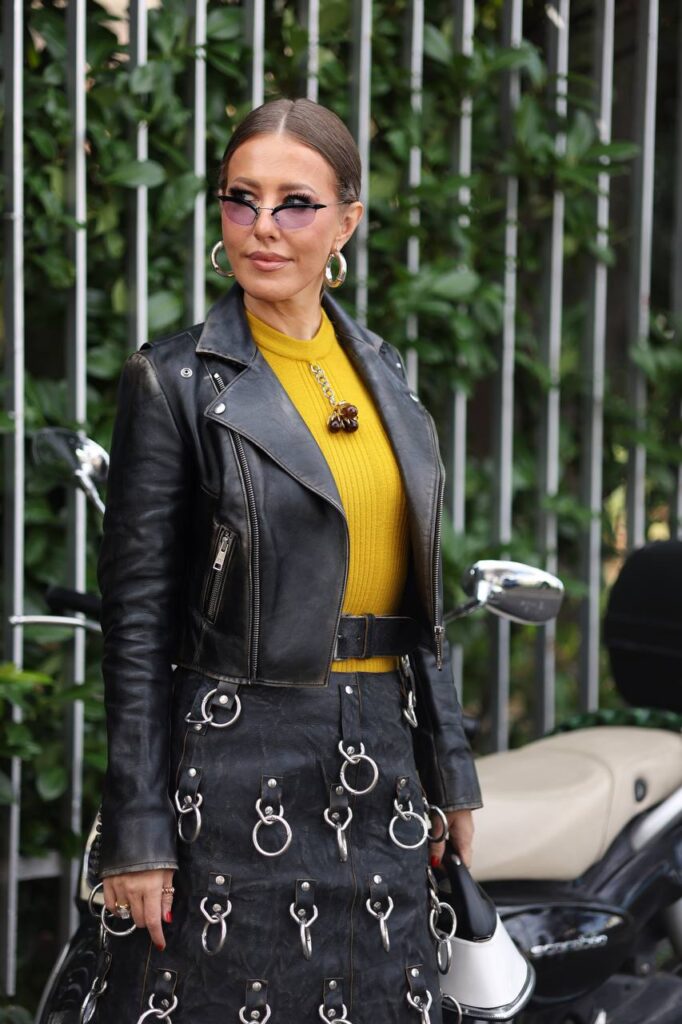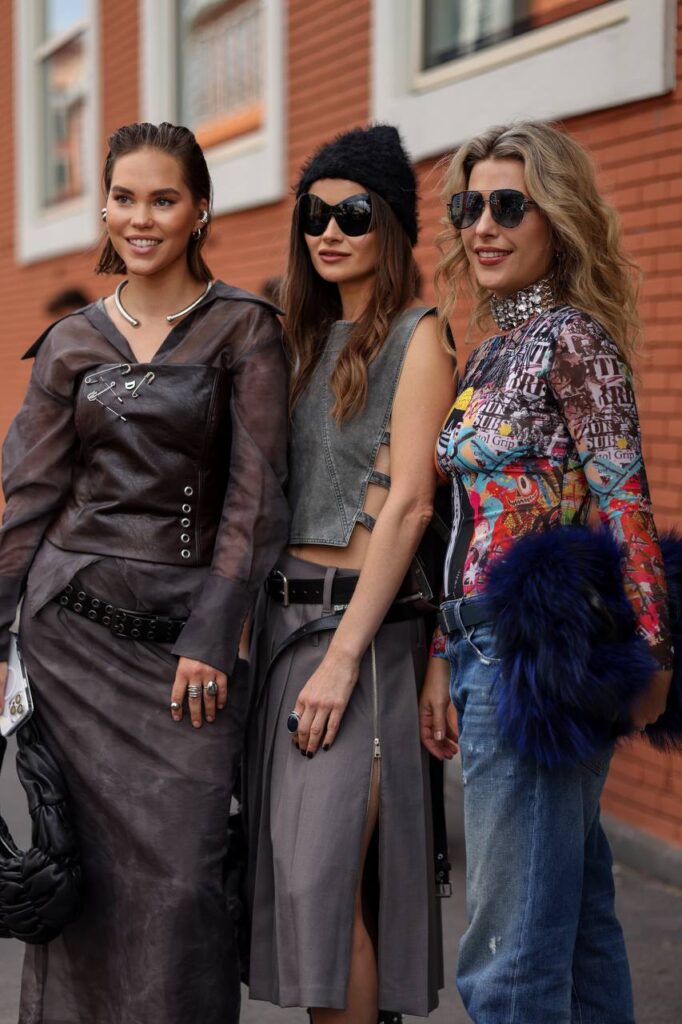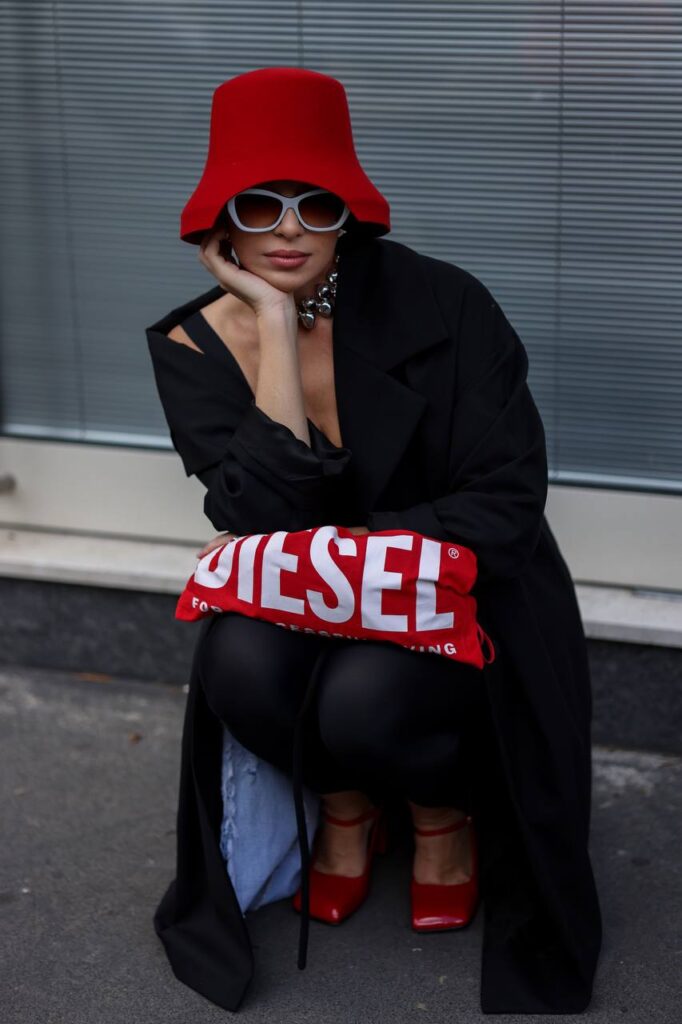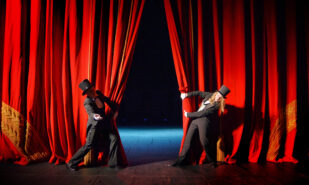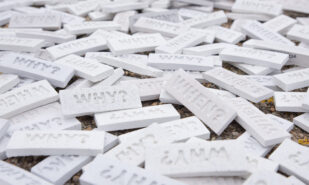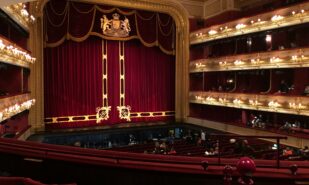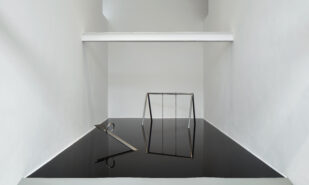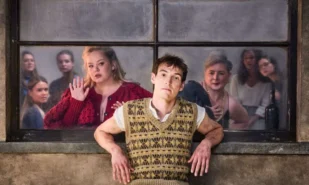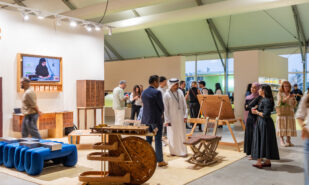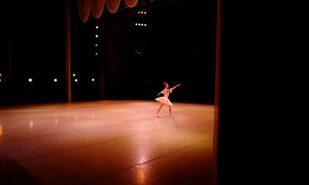La Famiglia: Gucci Turns Milan Fashion Week Into a Family Drama
On the opening day of Milan Fashion Week, the runway went dark and the screen lit up. Gucci, under its new creative director Demna Gvasalia, unveiled the La Famiglia collection not with a fashion show but with a film. The Tiger, directed by Spike Jonze and Halina Reijn, starred Demi Moore, Edward Norton, Elliot Page, Keke Palmer, and a full Hollywood cast. Instead of a catwalk, the audience was given a family drama, layered with Italian baroque flourishes and Demna’s signature irony.
The half-hour film centers on Barbara Gucci, a matriarch played by Demi Moore, who gathers her relatives and a Vanity Fair journalist for her birthday. What begins as a party quickly turns into a tense domestic spectacle where archetypes collide, roles unravel, and costumes function as a further narrative layer. The collection itself is structured as a gallery of characters — La Diva, Primadonna, Partyboy, Direttore, Bastardo, and others. Each piece is not so much a garment as a mask, ready for society’s stage.
The red carpet outside the premiere became a performance of its own. Demi Moore shimmered in gold sequins, embodying the leading role she plays on screen. Serena Williams appeared in a black feathered dress, Gwyneth Paltrow opted for total Gucci monogram, and Alex Consani donned a tiger-print coat dress that instantly became the symbol of the evening. Mariacarla Boscono, Alia Shawkat, Delilah Belle, and many others also appeared in Gucci. What emerged was not yet a film premiere and not quite a runway, but the gathering of a living, slightly eccentric “family.”
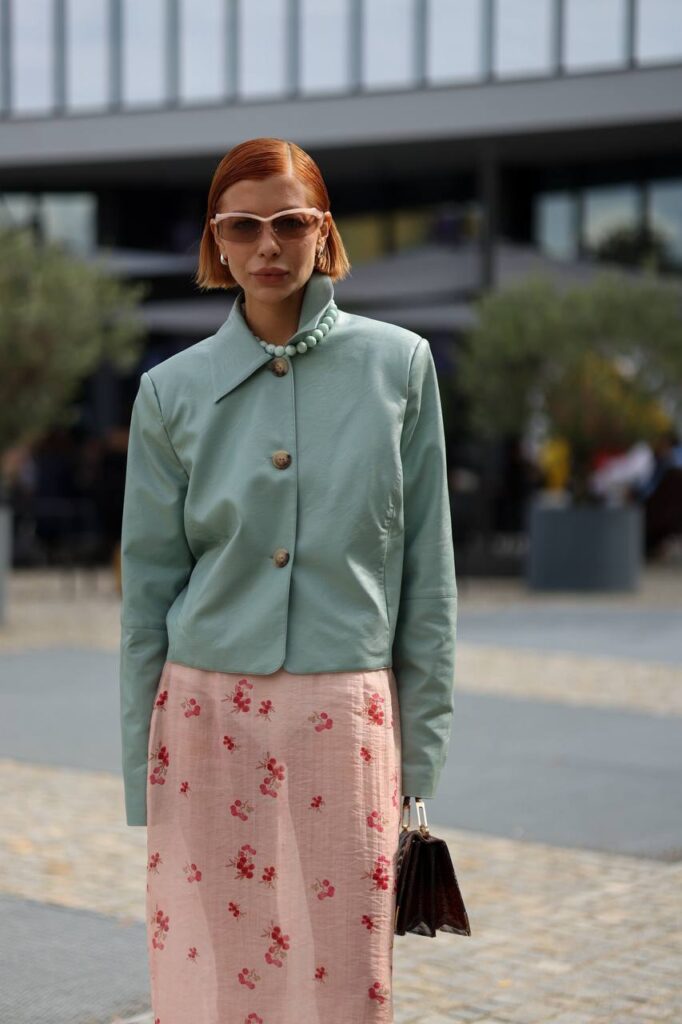
Photo by Daria Borodaeva
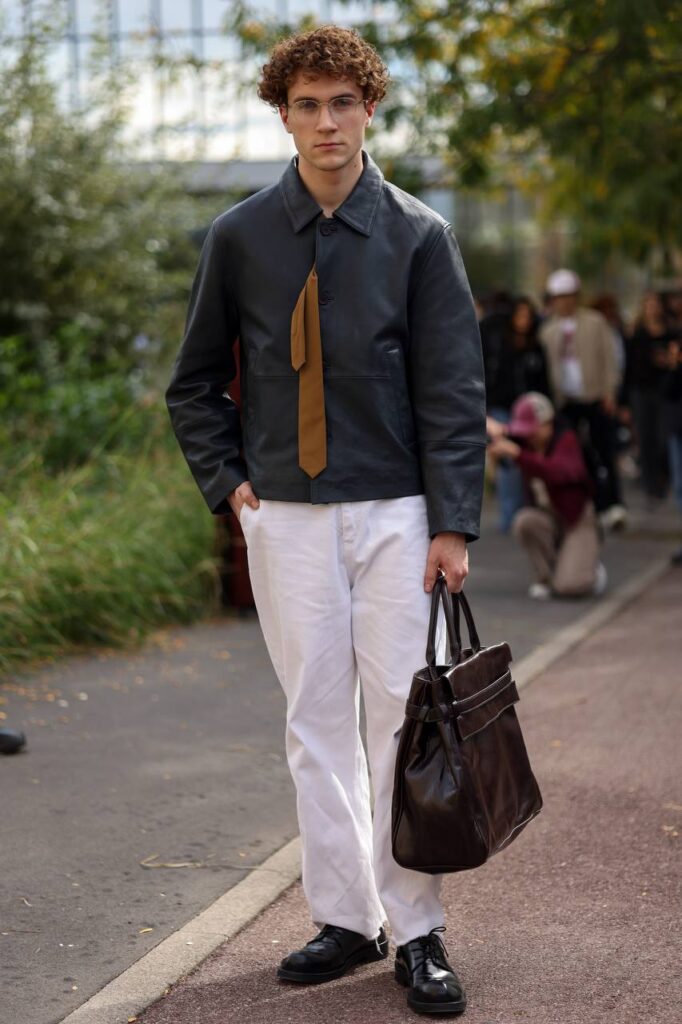
Photo by Daria Borodaeva
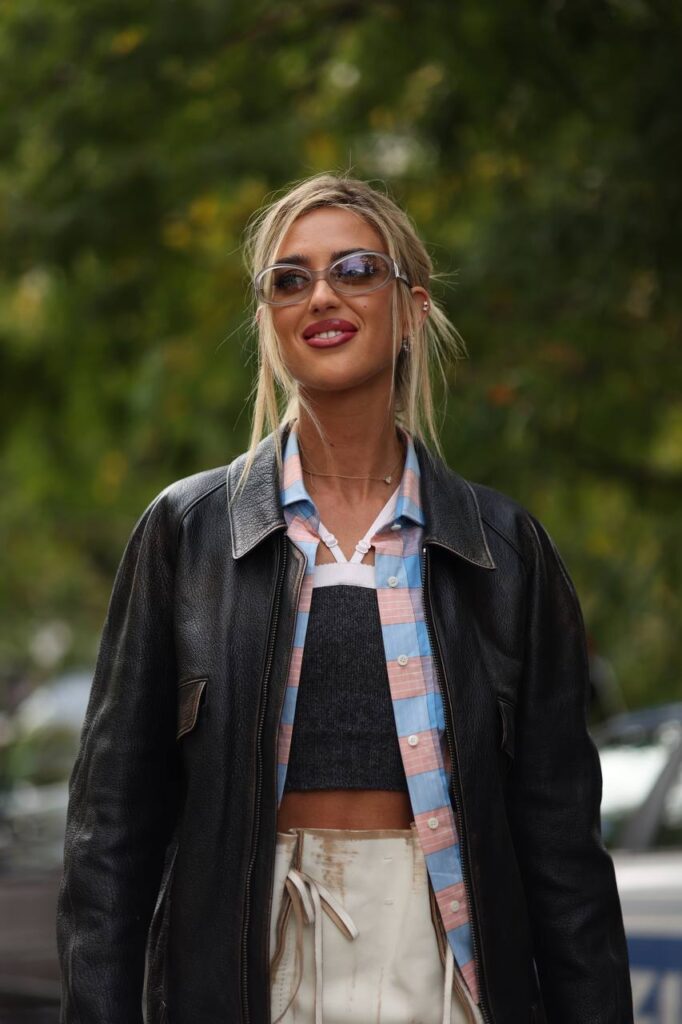
Photo by Daria Borodaeva
The drama didn’t end when the credits rolled. Guests moved on to an after-party staged as a formal dinner, extending La Famiglia into reality. Archetypes that had come alive on screen slipped seamlessly into the dining hall, erasing the line between cinema and life.
Gucci primed its audience carefully. A day before the premiere, the brand teased the lookbook on Instagram. Immediately afterward, pieces from the collection appeared in boutiques across ten cities — from Los Angeles to Shanghai — in a see-now-buy-now format. It was spectacle for the media and ready commerce for the clientele.
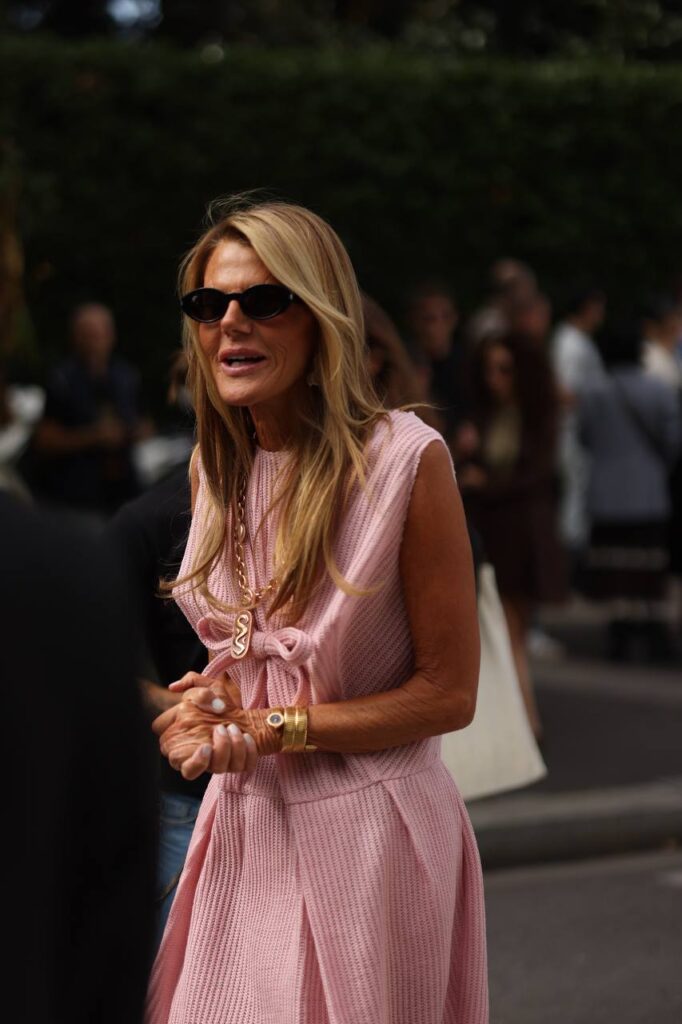
Photo by Daria Borodaeva
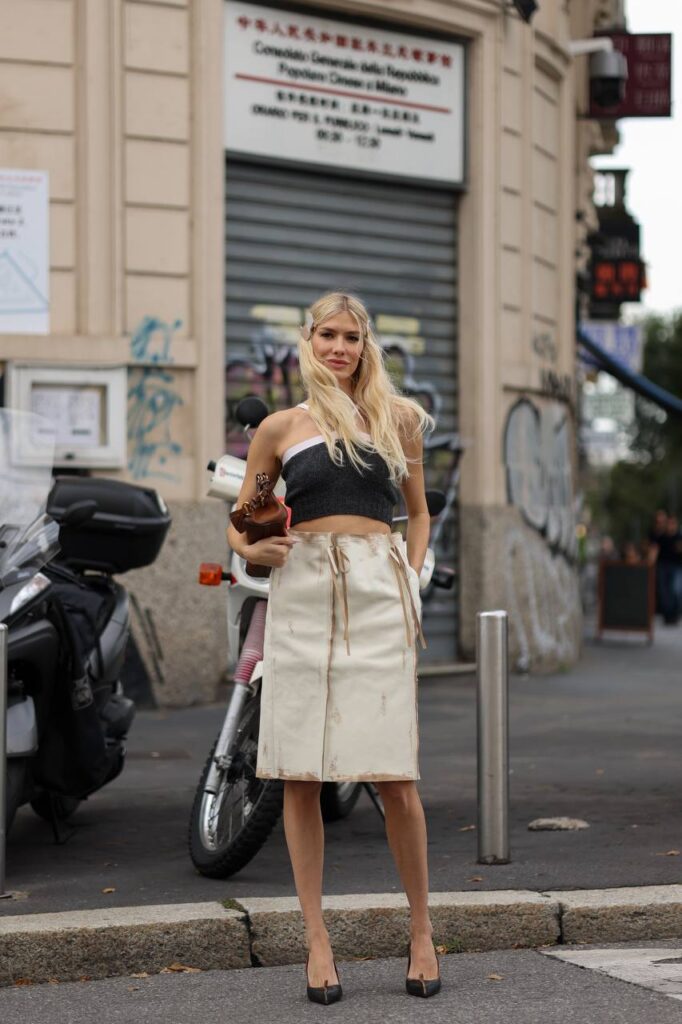
Lena Perminova, Milan Fashion Week
Photo by Daria Borodaeva
When asked which archetype he identified with, Demna answered, “Il Ragazzo” — the boy. Not the boy next door, and certainly not the cool kid. The reply carried irony and distance: the designer refuses to make himself the center of the drama, while still playing along.
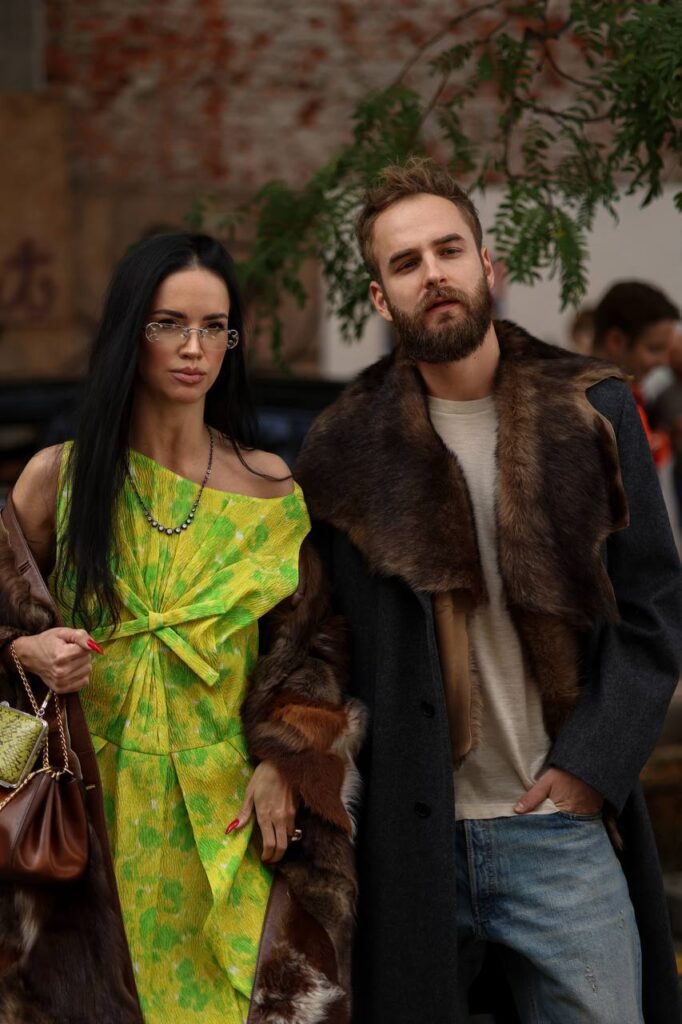
Photo by Daria Borodaeva
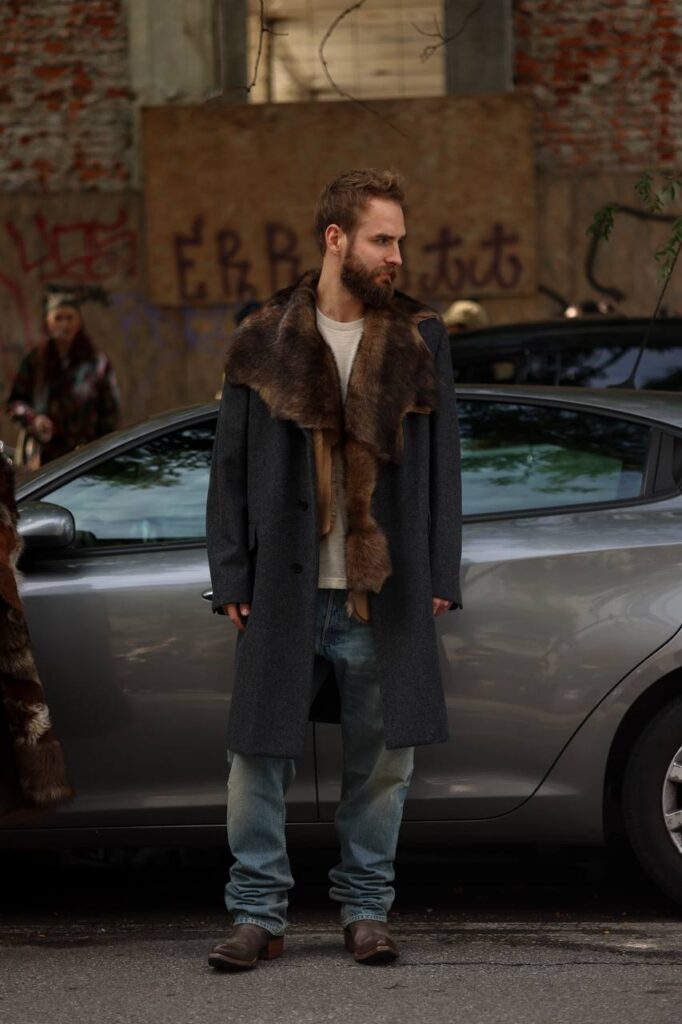
Photo by Daria Borodaeva
Gucci urgently needs a new myth. Sales have fallen by nearly a quarter, and the new creative director is tasked with restoring the brand’s weight and emotional influence. Demna has returned to the strategy he knows best: fashion as cultural statement, runway as theater.
With La Famiglia, the emphasis is not on cut or fabric but on the lives and temperaments the clothes suggest. This is not a checklist of silhouettes for spring but a catalogue of alter egos. Trends are a palette, not a finished canvas. One chooses neither a skirt nor a suit but a role: star of the evening, femme fatale, serious expert, or art historian. The designer is less a dictator of styles than a curator of identities, offering wardrobes as scripts for self-invention.
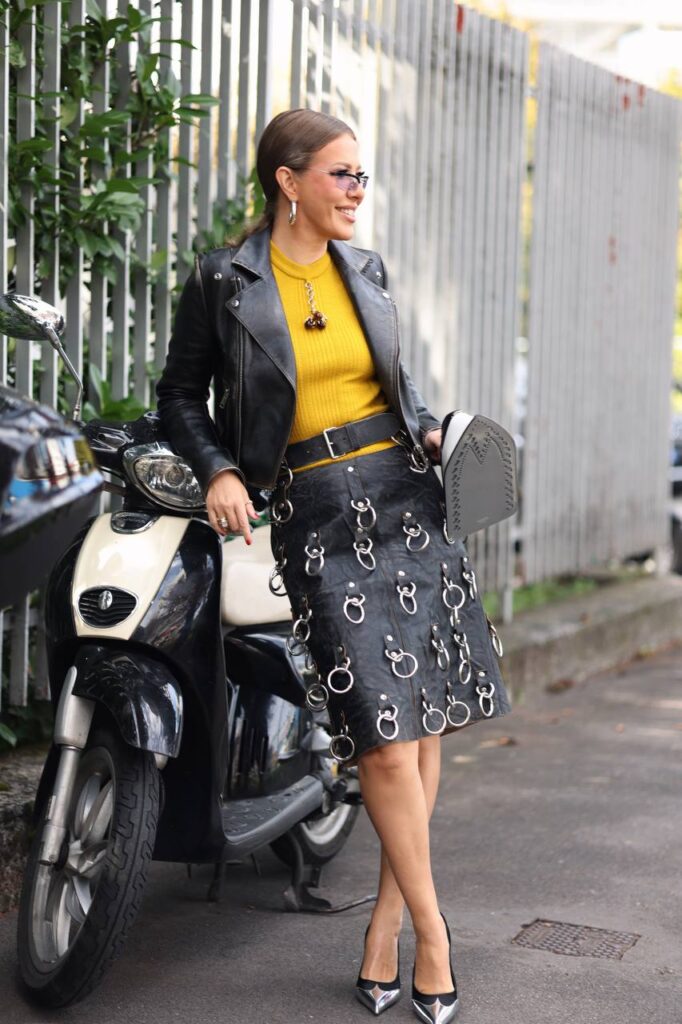
Photo by Daria Borodaeva
The contrast with other Milan shows was striking. Fendi abandoned “quiet luxury” in favor of vivid color, florals, and geometric patterns. Jil Sander doubled down on purity of silhouette and restrained minimalism, where every detail served construction. Diesel staged a street performance, placing models inside transparent capsules visible to the public. All were spectacular in their own way — conceptual, theatrical, polished — but within familiar formats. Against them, Gucci’s film stood out as the conversation piece of the week.
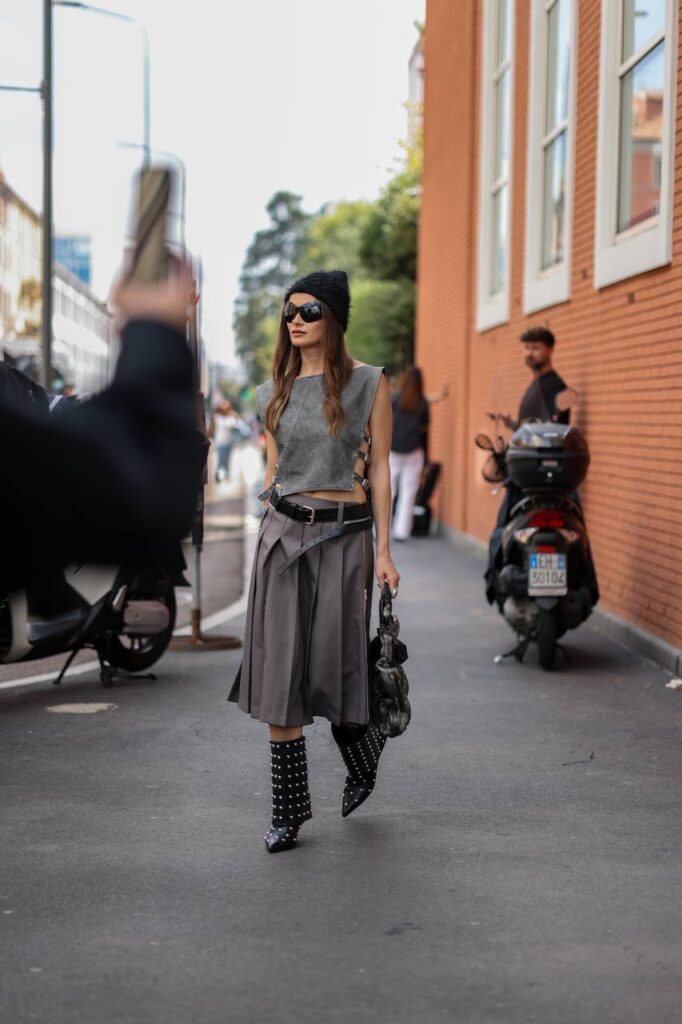
Critics largely agreed: Demna’s Gucci debut was strong yet cautious. The choice of film over runway and the play with archetypes were seen as a bold move.
Yet many view it as a prologue rather than a definitive statement. The parallels with Balenciaga remain too obvious, and the true test will come in February 2026, when Demna presents his first runway show for Gucci.
Still, even as a prelude, La Famiglia sharpened a shift already underway in fashion. Clothing is less about tailoring and fabric and more about identity and role. Gucci crystallized this truth. The essential question is no longer what’s in fashion, but who do you want to be today?
Milan Fashion Week runs September 23–29.


